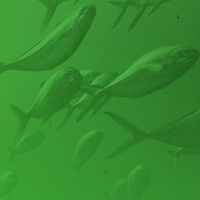-
Grants
38
-
Total Awarded
$47,338,769
-
Years
1980 - 2020
-
Categories
Grants
The Nature Conservancy (TNC) is a leading not-for-profit conservation organization that provides pragmatic solutions to protect ecologically important lands and waters for nature and people. The India chapter of The Nature Conservancy was established in 2015, with the mission of supporting decision making and action on managing the country’s natural resources, guided by sound science. TNC works closely with the Indian government, local NGOs, research institutions and communities to find solutions to some of India’s most pressing environmental challenges. This award supports TNC to demonstrate the use of the SiteRight tool, a GIS-based data visualization application, to financial institutions, policy makers and renewable energy (RE) project developers in identifying the most appropriate locations for siting renewable energy centers in the RE-rich states of India. TNC is promoting the use of the tool as an essential part of the decision making process, reducing the probability of future conflicts for these three key interest groups.
The Nature Conservancy is working to advance India’s renewable energy targets without undermining conservation goals, which is complex because both activities require land, by refining and disseminating a tool that simulates and evaluates the economic impact of renewable energy siting choices. Land use conflicts are one of the largest challenges to developers as India continues to pursue its goal of increasing renewable energy generation to 175 gigawatts by 2022. The tool, Decision Analysis for Research and Planning (DARPAN), is managed by the Centre for Study of Science, Technology, and Policy, and is intended for use by national and state governments in India; it is scheduled for release in September 2018. The award supports refinement of the DARPAN tool to further de-risk renewable energy investments from land conflicts in the states of Madhya Pradesh and Maharashtra, where The Nature Conservancy also is working with energy developers and raising stakeholder awareness about land use conflicts and the DARPAN tool.
The Nature Conservancy (TNC) is the leading conservation organization working around the world to protect ecologically important lands and waters for nature and people. In partnership with Environmental Defense Fund, TNC is embarking on a concerted effort over the next two federal election cycles to engage a broad cross-section of voters to forge the necessary coalitions and political base for durable action on climate policy by state legislatures and Congress. The Foundation’s award ensures that The Nature Conservancy can engage fully in the partnership in order to make action on climate change a central, rather than peripheral, political issue for targeted constituencies. Critical to U.S. leadership on addressing climate change and its role in ensuring that developing countries, particularly China and India, meet their 2025 carbon emissions reduction targets, is, among other things, a robust and well-informed political debate across the state and federal governments about the dangers climate change poses and the ways to limit its negative impacts.
The Nature Conservancy (TNC) works around the world to protect ecologically important lands and waters for nature and people. This award builds on progress made over the previous four years in western Tanzania’s Greater Mahale Ecosystem on the shore of Lake Tanganyika, a global hotspot for biodiversity. Employing a two-part strategy, TNC is securing terrestrial and freshwater resources in Mahale Mountains National Park (MMNP) and its buffer zone. First, with Tanzania National Parks Authority, TNC is demarcating, monitoring and enforcing freshwater protected areas adjacent to the national park. Second, the partners are creating and equipping coordinated fire management units in 13 villages and a new ranger post to protect the park and neighboring chimpanzee habitat from human-set wildfires, poaching, and illegal settlement. These efforts address encroaching threats, including illegal fishing, unmanaged dry season fires, and a planned road through intact forest. With TNC’s support, the strategy will be adopted and financed by the National Parks Authority after its establishment.
The Nature Conservancy (TNC) is an international organization that conserves the lands and waters on which all life depends. With support from the MacArthur Foundation, the Critical Ecosystem Partnership Fund, and the United Nations Environment Program, TNC and the Lake Tanganyika Authority are convening the Africa Great Lakes Conference – the first event of its kind in nearly two decades – in May 2017 in Entebbe, Uganda. This event convenes relevant stakeholders from all seven major watersheds in the Great Lakes Region of East and Central Africa to address critical, shared issues, including climate change impacts, governance challenges, conservation and development paradigms, public health and water, fisheries management, and biodiversity. With this award, TNC creates the Africa Great Lakes Fund, a fund designed to provide catalytic support for implementing key recommendations that result from the conference.
The Nature Conservancy (TNC) is a leading not-for-profit conservation organization that provides pragmatic solutions to protect ecologically important lands and waters for nature and people. In India,TNC works with the Center for Study on Science, Technology and Policy, a well-regarded not-for-profit research organization with expertise in science-based policy research, to develop a digital visualization platform to generate alternate land-use maps and scenarios to inform siting decisions and their associated environmental impacts for renewable energy (RE) development in two Indian states of Maharashtra and Madhya Pradesh. As India pushes ahead with its ambitious program of expanding RE generation capacity, this award provides decision makers in the two states with optimized choices on locating RE generation centers with minimal adverse impact on the environment and forest ecology.
The Nature Conservancy (TNC) works around the world to protect ecologically important lands and waters for nature and people. The project is testing low emissions development strategies that will reduce deforestation rates in two important forest areas: the Yucatan Peninsula, Mexico, which covers roughly 13 million hectares, approximately 6 million hectares of which are forested; and Pará State, Brazil, the second largest state in the Amazon, covering about 125 million hectares. The project outcomes are written commitments among government, industry, and communities in each site to drive low emissions development and reduce deforestation, as well as cases studies describing their design and coordination.
The Nature Conservancy (TNC) works around the world to protect ecologically important lands and waters for nature and people. The project will organize and convene the African Great Lakes Summit, an event that brings together lake basin management authorities, government departments, nongovernmental and community organizations, researchers, and donors. The Summit will recommend approaches for sound, long-term management and mitigation of threats from unsustainable development of the lake basins. Drawing from the experience of the United States and Canada Great Lakes Fishery Commission and other bi-national agencies, an advisory committee and technical advisory group will assist in planning and hosting the event. Information, data, and technical reports on Africa’s Great Lakes will be collated and made publicly available through an online portal. This will improve access and foster collaboration between relevant institutions.
The Nature Conservancy is the leading conservation organization working around the world to protect ecologically important lands and waters for nature and people. In partnership with Environmental Defense Fund, TNC is embarking on a concerted effort over the next two federal election cycles to engage a broad cross-section of voters to forge the necessary coalitions and political base for durable action on climate policy by state legislatures and Congress. The Foundation’s award ensures that The Nature Conservancy can engage fully in the partnership in order to make action on climate change a central, rather than peripheral, political issue for targeted constituencies. Critical to U.S. leadership on addressing climate change, and its role in ensuring that developing countries, particularly China and India, meet their 2025 carbon emissions reduction targets, is, among other things, a robust and well-informed political debate across the state and federal governments about the dangers climate change poses and the ways to limit its negative impacts.
The Nature Conservancy (TNC) is an international conservation organization that works with partners to support the Colombian government in developing an Integrated River Basin Management plan for the Magdalena-Cauca Rivers. The purpose of the grant is to develop and refine a set of support tools and strategies that will influence hydropower development policy and strengthen Colombian regulatory agencies to apply basin-wide management principles.
The Nature Conservancy (TNC) works around the world to protect ecologically important lands and waters for nature and people. TNC will work with a fleet of medium scale fishers in eastern Indonesia to work towards improved management of two commercially important fisheries – snapper and tuna. The overall goal is to move towards a model of sustainable fisheries. TNC will be working directly with the private sector, introducing simple and low-cost technological solutions to increase sustainability and traceability in fisheries.
The Nature Conservancy works around the world to protect ecologically important lands and waters for nature and people. The purpose of this grant is to maintain the richness and increase the abundance of Lake Tanganyika’s fish communities while improving fishing livelihoods. Working in the Greater Mahale Ecosystem, the Nature Conservancy will establish a freshwater fisheries management program that reduces the use of illegal fishing gear, protects priority near shore areas, increases the richness and abundance of fish and increases household incomes.
To design Phase II of the Great Rivers Partnership.
To build resilience-based approaches into coral reef management globally (over two years).
To establish a sustainable conservation funding mechanism for protected areas in the Caribbean region (over two years).
To developing a tri-national, Haiti-Dominican Republic-Cuba marine action plan for the Caribbean Biological Corridor.
To become a more strategically-focused global conservation organization.
To support integrated conservation of coastal and terrestrial ecosystems in the Solomon Islands (over three years).
To assess the vulnerability of the Priority Conservation Areas in China's National Biodiversity Conservation Strategy and Action Plan to climate change (over three years).
To provide the tools, training, and peer networks needed to adaptively manage for climate change impacts on coastal systems (over two years).
To strengthen marine conservation in the Solomon Island Archipelago (over three years).
In support of building capacity within municipal governments for planning and implementing conservation initiatives in Bolivia (over three years).
In support of building local capacity for public and private lands conservation in Jamaica (over three years).
For activities to ensure ongoing conservation practices in the Arnavon Islands and extend the lessons learned to new locations in the western Solomon Islands (over three years).
In support of the Conservation Measures Partnership to develop common standards for the monitoring and auditing of conservation projects.
To establish national environmental funds in Africa (over three years).
To develop a co-management plan for the Sierra de Lacandón National Park in Guatemala (over two years).
To coordinate a nongovernmental organization working group monitoring actions of the Global Environment Facility.
To advise Japanese development assistance programs on conservation issues (over three years).
To develop partnerships between Latin American environmental organizations and regional universities (over three years).
For a strategic planning project in collaboration with the Keidanren Nature Conservation Fund in Japan (over two years).
To bring a delegation of Cuban environmental experts to the United States.
In support of general operations of Gray Ranch.
To designate 585 acres of land in Imperial County, California, as a "tradeland" gift.
To acquire the La Selva Protection, a 19,000-acre property on the Atlantic slope of Costa Rica, with the property to ultimately be turned over to the Costa Rican Park Service for management for scientific research, education, and conservation.
Donation of 903 acres along Loxachatchee River in north Palm Beach County and southern Martin County, Florida.
To establish a national database on ecology and conservation, by linking state and regional heritage programs (over three years).
For a study and report on the ecology of the John D. MacArthur Beach State Park, to be used in planning.












